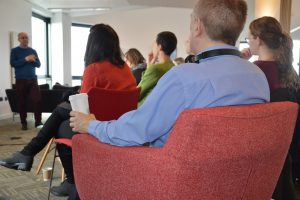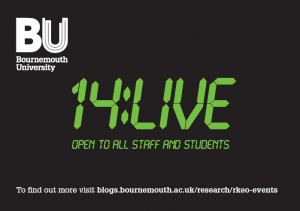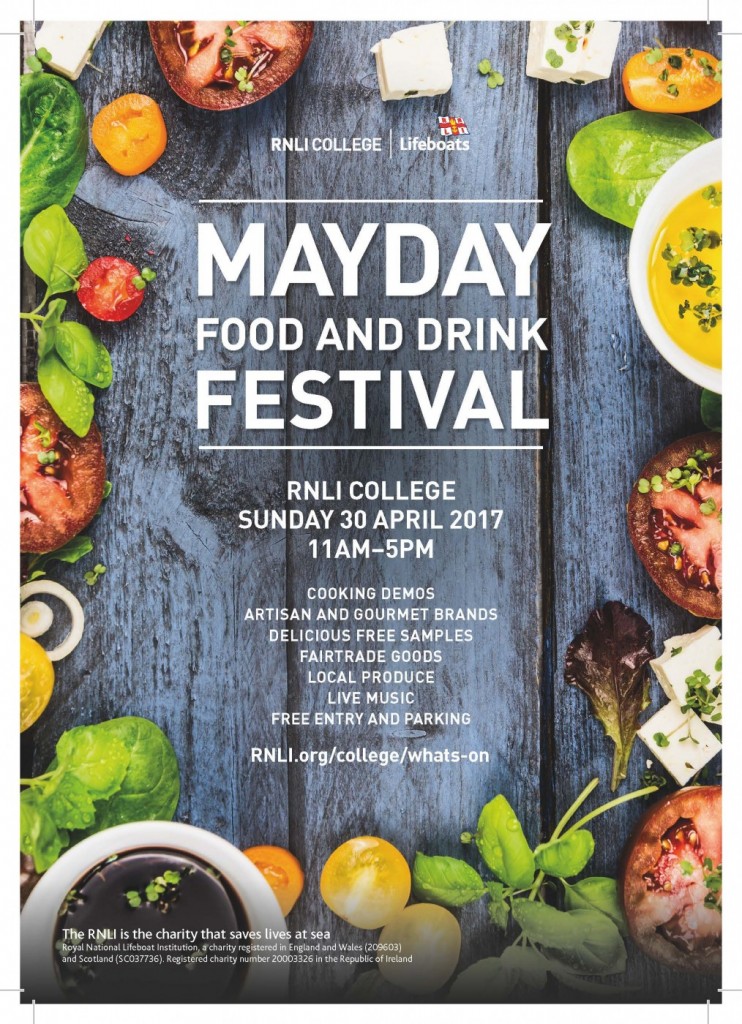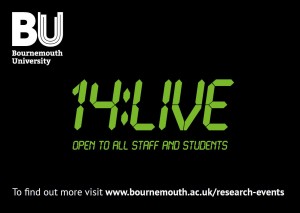Jo Johnson spoke at a UUK conference today and made a number of important announcements:
- New government amendments to the Higher Education and Research Bill. The detailed amendments have not yet been published but a Department for Education factsheet has been provided. The government amendments have been welcomed so far. See the Latest set of proposed amendments (mostly opposition amendments but some government ones too) – this will clearly grow more before the report stage starts on 6th March 2017. See more below.
- Importantly, he announced that the subject level TEF would have a two year pilot – starting in 2017/18 but also running through 2018/19. Subject level TEF would then be formally implemented in 2019/20, with ratings that are announced around May 2020 with the Year 5 institutional level ratings. Note that it is currently not intended that subject level TEF will result in subject level fees. There was no mention of TEF for post-graduate, which was originally planned to run in year 4, so assessed during 2018/19.
- Accelerated degrees – Jo Johnson also wrote in the Times about the government response to the consultation on accelerated degrees and credit switching (that closed last July with 1000s of responses) which will be issued shortly, and relevant changes that will be made to the HE Bill. Apart from the headline grabbing focus on universities being able to raise fees above £13,000 a year, this consultation response will probably contain interesting stuff on credit transfers between universities. The headline focus on fees is a little bit misleading, because this is in response to sector feedback that it isn’t possible to provide three years of teaching in two years unless fees are increased for those two years (there were many other comments about the impact on extra- and co-curricular activities, as well as cost). The higher fees would only apply to accelerated degrees, as The Times story makes clear.
- He also announced a number of other changes regarding institutional and research autonomy which are very helpful – more detail is given below.
HE and Research Bill – As mentioned above, the amendments continue to accumulate for the Lords report stage of the HE bill with the latest government amendments yet to be published. See the latest round up from Wonkhe here. One joint government and Labour amendment (to replace the opposition amendment passed in the House of Lords) defines institutional autonomy, and a number of others require the OfS to protect that autonomy. The definition that is proposed is set out below:
- There is a new transparency duty – one that did seem to be an omission in the previous drafting. The TEF reflects the new focus on widening participation away from just access to progression and outcomes, but the HE Bill did not reflect this fully in the transparency duty as originally proposed. This has now been picked up, and the proposed amendment (which we have not seen yet) will require providers to publish information on levels of attainment, in addition to application, offer, acceptance and completion rates, broken down by gender, ethnicity and socio-economic background.
- After the long and energetic discussions in the Lords about the Haldane principle, research autonomy and the many concerns expressed about the role of the Secretary of State, a number of amendments have been tabled 9but not yet published) including one explicitly about the Haldane principle
- There is a response to the criticism of the limitations on the role of Innovation UK and some of its financial arrangements – we don’t have the detail on all of it but the business focus amendment is set out in the explanatory paper
- As noted above, the announcement on accelerated degrees requires a change to the HE Bill to allow for higher fees for accelerated degrees – the DfE paper is clear that the overall cost of a degree will not go up – but universities will be allowed to charge more per year for the more intensive short courses.
- On credit transfer, the proposed amendments will apparently require the OfS to monitor and report on arrangements for student transfer and a power for them to encourage and promote it.
- There are a number of more technical amendments proposed, including to protect institutions in cases where degree awarding powers may be revoked, to protect Royal Charters and to ensure that the OfS does not meddle in institutional autonomy as regards standards. These changes will be most welcome, and BU, along with most of the sector has called for these changes, and we are looking forward to seeing the detail.
Other proposed opposition amendments include:
- yet another attempt to change the name of the OfS – this time to the Office for Higher Education Standards. Given that the government have just confirmed that the OfS should not meddle in standards (see above), this amendment seems unlikely to pass.
- and another attempt to address student loan repayment terms and conditions – this has been raised at every opportunity so far but has not yet been subject to a vote.
The HEFCE grant letter is out, with extensive coverage. Research Professional report that:
- Teaching funding will fall, representing nine consecutive years of reductions- it is due to be cut by 5 per cent in 2018-19—and the funds now also have to cover the expansion of medical schools and include trainee nurses, midwives and other health professionals. This is particularly interesting because of the theory that removing the commissioning arrangement will increase student numbers, balanced against concerns in the sector about falling applications and the real-life challenge with increasing student numbers, i.e. placements – On the latter point, Research Professional note the part of the HEFCE letter that “adds that in order to implement the Department of Health announcement that, from September 2018, the government would fund up to 1,500 additional student places in medical schools each year, the funding council should make an initial allocation of 500 places in 2018-19 “based on the capacity for growth and viability of provision in different institutions and be informed by advice from the Department of Health and Health Education England on the distribution of medical placements”
- On PG: “The letter further asks that the funding council ensures it pays for postgraduate courses on a basis that is “consistent with and complementary to” the new postgraduate loan system. In particular the funding council is asked to prioritise science and other high cost subjects.”
- On TEF: “It asks the funding council to continue funding the introduction of the teaching excellence framework, including the subject-level pilots, for which the budget and approach will be determined later in 2017. The letter further encourages the continued funding of the “high priority” learning gain pilots” – which may give us an idea of where TEF metrics may be headed
- On schools: “On social mobility, government asks the funding council to continue encouraging “innovative” forms of engagement with schools, including work to identify which institutions are sponsoring or establishing schools and the support they require to achieve it.” This sounds like a slight backing away from compulsory sponsorship of schools? Or maybe just preparation for identifying those who don’t comply.
- On research: “the letter says that detailed allocations for the £4.7 billion of additional investment pledged in the autumn statement will be finalised in early March. The funding council is expected to distribute the additional research and knowledge exchange funding allocation in 2017-18. The £100 million announced for technology transfer, meanwhile, will be based on competitive mechanisms that the funding council will develop with the Department for Business, Energy and Industrial Strategy.”
- And on student wellbeing: “The letter further asks the funding council to implement recommendations made by the Universities UK taskforce on violence, sexual harassment and hate crimes, which advocated the embedding of a zero-tolerance culture towards such incidents on campus. It also recommends the creation of an evidence base around mental health needs and services for staff and students.” The latter cross refers to a UUK good practice guide.
- Other issues include plagiarism, credit transfer, REF, degree apprenticeships, Prevent and efficiency.
BTEC students – the Higher Education Policy Institute (HEPI) have issued a report on BTECs and Pearson have blogged for them. The report concludes that “Students arriving at university with BTECs account for much of the growth in students from the lowest participation neighbourhoods and other under-represented groups over the past decade. But those with BTECs face a ‘glass ceiling’ – for example:
- only 15 BTEC students were accepted at the four most selective higher education institutions in 2015; and
- under 60 per cent of students with BTECs at Russell Group universities complete their course.”
The report makes the following policy recommendations:
- As the proportion of pupils achieving the highest BTEC grades (equivalent to three A-Levels) more than doubled from 17% to 38% between 2006 and 2013, the Government should evaluate whether the current system of external verification of BTECs is fit for purpose.
- Universities should issue collective guidance on which BTECs are most valuable to students in terms of progression, as they have already done for A-Levels.
- More prestigious universities with low numbers of BTEC students should consider bespoke access courses for BTEC students aimed at helping them adjust to the methods of teaching and assessment that are common in higher education.
Lifelong learning – The University Alliance issued a report on lifelong learning which calls for a number of actions, including setting up a UCAS style system for adult learning courses, reintroducing individual learning accounts and providing additional loans. They also mention accelerated degrees and suggest broadening the apprenticeship levy to cover such course.
Essay Mills – Jo Johnson called this week on universities to do more to stop students buying custom written essays online. He has asked the QAA to prepare guidance for universities and information for students to help combat the use of ‘essay mills’ websites as well as other forms of plagiarism and for the QAA to take direct action against those marketing the services. It looks as if the guidance will focus on making sure that universities have policies and sanctions in place.
“The Universities Minister has asked for guidance aimed at universities and information for students to help combat the use of these websites, as well as other forms of plagiarism. The Quality Assurance Agency (QAA) has also been tasked to take action against the online advertising of these services and to work with international agencies to deal with this problem.
The Minister is calling for the guidance to include tough new penalties for those who make use of essay mills websites, as well as the need to educate students about the potentially significant negative impacts on their future career if they are caught cheating.
Universities Minister Jo Johnson said: “This form of cheating is unacceptable and every university should have strong policies and sanctions in place to detect and deal with it“. Essay mill websites threaten to undermine the high quality reputation of a UK degree so it is vital that the sector works together to address this in a consistent and robust way.””
Brexit – The Department for Business, Energy and Industrial Strategy (BEIS) has published the terms of reference and membership of its “high level stakeholder working group on EU exit, universities, research and innovation”.
“The overarching purpose of the group is to provide a forum for BEIS, DfE, DExEU, and a broad range of UK representatives of the universities, science, research and innovation communities to discuss issues of common interest in approaching the UK’s exit from the EU. The emphasis will be on considering all factors related to research and innovation that need to be taken into account as government policy develops.”
Membership includes Jo Johnson, Madeleine Atkins, Nicola Dandridge, and the chairs of Million Plus, the Russell Group, GuildHE and the University Alliance, a couple of VCs and PVCs from the devolved administrations (Heriot-Watt, Ulster, Cardiff) and representatives of a number of science bodies such as the Royal Academy of Engineering, the Campaign for Science and Engineering and others, CBI, RCUK, UKRI. And Sir Mark Walport in his current role as the Government Chief Scientific Adviser. Interestingly, none of the bodies represented are arts or social sciences bodies, which continues to demonstrate the apparent assumption in all of these groups on research as an activity that is only relevant to STEM.
Competition and Markets Authority (CMA) have intervened following a complaint to OIA from students that didn’t receive sufficient notice that compulsory modules had been introduced to their course. While UEA was not considered by OIA to have breached its rules the CMA have asked UEA to change its policy and consider the introduction of compulsory modules as a substantial change which would require greater timeliness of notice in future. CMA’s intervention is seen as a landmark intrusion by some. The CMA request is discussed further by Jim Dickinson and Paul Greatrix on Wonkhe. UUK also have a blog on the subject.























 BU attendance at third annual GCPHR meeting in June
BU attendance at third annual GCPHR meeting in June Interactive Tangible and Intangible Heritage Applications – BU student work featured in new book chapter
Interactive Tangible and Intangible Heritage Applications – BU student work featured in new book chapter Second NIHR MIHERC meeting in Bournemouth this week
Second NIHR MIHERC meeting in Bournemouth this week MSCA Postdoctoral Fellowships 2025 Call
MSCA Postdoctoral Fellowships 2025 Call ERC Advanced Grant 2025 Webinar
ERC Advanced Grant 2025 Webinar Horizon Europe Work Programme 2025 Published
Horizon Europe Work Programme 2025 Published Horizon Europe 2025 Work Programme pre-Published
Horizon Europe 2025 Work Programme pre-Published Update on UKRO services
Update on UKRO services European research project exploring use of ‘virtual twins’ to better manage metabolic associated fatty liver disease
European research project exploring use of ‘virtual twins’ to better manage metabolic associated fatty liver disease